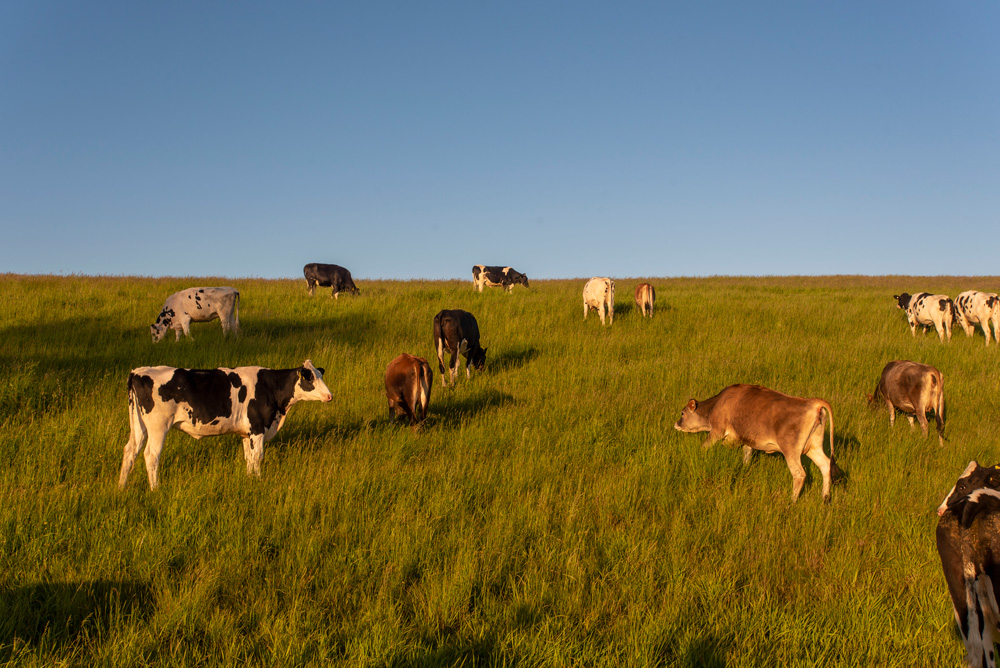Elias Uddin, assistant professor of animal nutrition, is investigating how changing ruminant nutrition can reduce the amount of methane cattle produce. While all ruminants produce methane, the amount they produce is changeable based on what you feed the animals.
Ruminants, including cows, have a unique form of digestion. They ferment their food in a special compartment of their stomach prior to digestion thanks to microbes in their guts. This process allows ruminants to absorb nutrients from their feed. However, these microbes also produce methane, a potent greenhouse gas, which cows emit through flatulence and other respiratory processes.
Uddin studies how dietary changes can reduce the amount of methane cows produce. More fibrous diets have increased methane production. Swapping out some fibrous elements, such as hay, for less fibrous ones such as grain can reduce methane.
“You can switch the diet to change the substrate needed by the microbiome to produce methane,” Uddin says.
Uddin also looks at feed additives that can reduce methane production. One promising additive is Asparagopsis, a type of red seaweed, which contains a compound known as bromoform. Bromoform inactivates an enzyme that the microbes need to produce methane. However, feed additives are currently very expensive. To offset this, Uddin combines Asparagopsis with other additives that increase the cows’ productivity.
“There’s no single silver bullet,” Uddin says. “So, you have to find multiple options that work alongside one another.”
